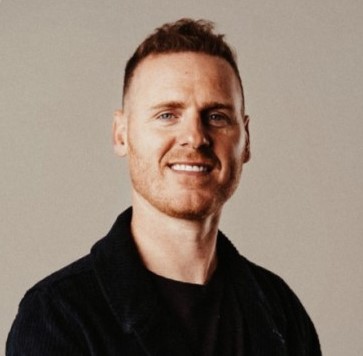
Kevin Barrett served for 22 years between 2001 and 2023, leaving with the rank of WO1. Kevin advised of his military career “In my most recent role I was Sergeant Major, delivering training as a rotary wing and FAC(A) SME. I also designed, trialled and delivered FAC(A) training to both Wildcat and Apache AH64 aircrew, coordinating training in the airborne environment in support of ground-based assets with fixed wing jet support. As an aircraft engineer, qualified helicopter instructor pilot, senior instructor, and forward air controller airborne instructor [FAC(A)-I], my role encompassed technical maintenance, operational piloting on utility aircraft and conducting ISTAR, training aircrew, and ensuring operational readiness for missions. This also involved leadership, technical engineering, critical thinking, and project management, with hands-on experience in high-pressure situations. All skills I learned while serving.
I am now a Senior Consultant, at Turner & Townsend. I got this role through the BuildForce network, leveraging my military skills, and identifying opportunities where those skills would be highly valued, particularly in consultancy.
In my new role I am put onto commissions, specifically procurement where I can leverage my military and aviation experience to benefit a programme or project. My day-to-day involves client meetings, project planning, stakeholder engagement, and developing strategies to align project objectives with broader sustainability and defence requirements. I spend time advising on projects, focusing on Defence and aviation experience, through lived experience, project management, stakeholder engagement, and technical analysis. Although I still wish to transfer into the construction sector, that is not where I landed. This was because I needed to reduce the drop in wage and stay closer to where my current experiences lie, and I could negotiate a better a salary.
My advice would be to make use of resources to help you with education and training, such as the Defence Learning Environment (DLE) and the Defence Academy. Choose courses that truly benefit your future career. That comes from speaking with the people in the industry you want, and not just what your mucker says!
Don’t be shy, approach people and build your network – talk to as many people as you can. My transition was significantly influenced by the connections I made, leading me to a fulfilling career in consultancy.
Plan and adapt: have a plan but be prepared to adapt. Your transition is about finding where you fit outside the military, and how you present yourself professionally is key.
Final top tip: do a “real” practice interview: Find a job that fits for you, but you know you can’t take, and go through the process to interview. Prep for it as you would for real. This experience is invaluable, almost like a ROC drill, where you get to test your interview skills in a realistic scenario without the pressure of it being a ‘must-win’ situation.